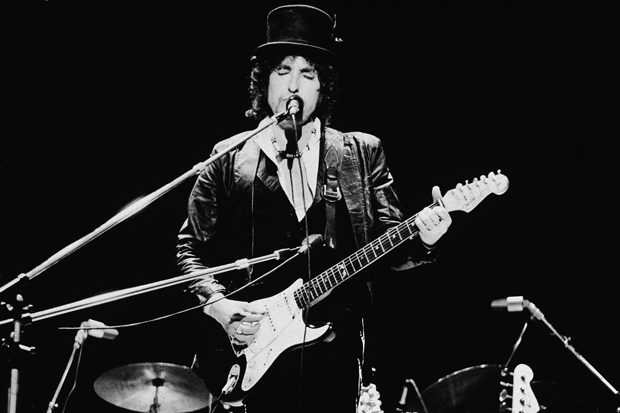I was talking the other day to a young woman who knows a lot about the history of rock. We shared an enthusiasm for Bob Dylan’s later work — especially Blood on the Tracks (1975). As we talked, it occurred to me that Dylan recorded this ‘late’ effort 40 years ago, only 13 years into his career. So why do we treat it as belonging more to our time than, say, his folk ballads from the early 1960s? Some baby-boomer journalist must have decided around 1970 that something Dylan did in 1965 or 1966 — maybe his switch to electric instruments or his motorcycle accident — marked a critical break in history.
We stupidly accept this view of things: Dylan is now in his sixth decade as a symbol of American youth. But time does keep moving on. Blood on the Tracks is now closer to the reign of George V (1910–1936) than to our day. For that matter, Dylan’s eponymous first album (1962) is closer to the reign of Edward VII (1901–10) than to us.
We live life forward, as Kierkegaard said, but understand it backward. The problem is, we have lost the habit of looking backward. We assume anything that happened to us is somehow part of the ‘present day’. If you were born in 1971 and are due to turn 44 this year, then you will consider 1971 part of the era that contains this new year of 2015. You were there then and you’re here now — a member in good standing of the era of Uber, Twitter and Tumblr. Therefore, 1971 is surely hip, new and interesting to talk about.
Yet the very process that makes you consider 1971 a recent birth year reveals you to be an old geezer.








Comments
Join the debate for just £1 a month
Be part of the conversation with other Spectator readers by getting your first three months for £3.
UNLOCK ACCESS Just £1 a monthAlready a subscriber? Log in